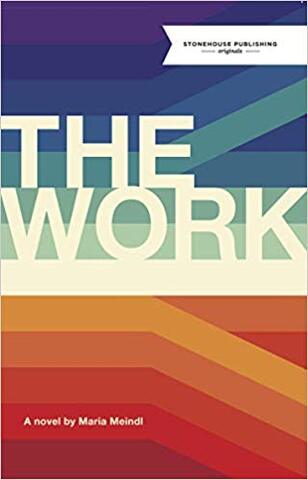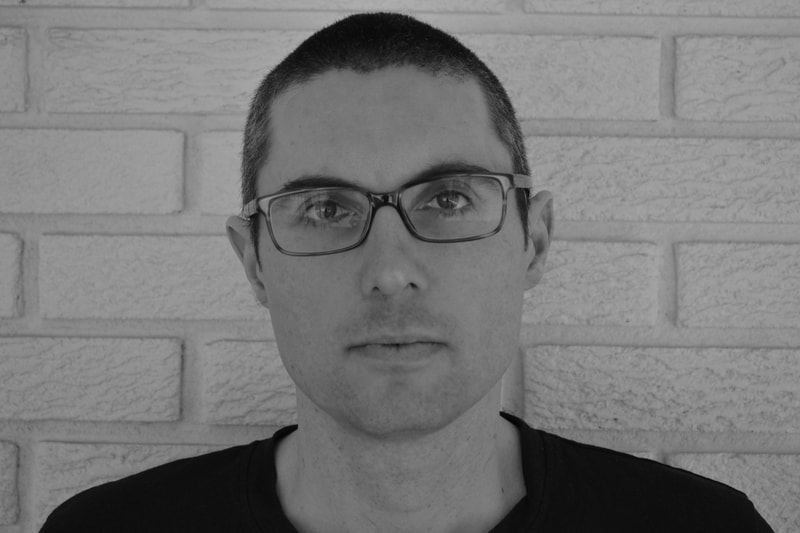Maria Meindl's The WorkReviewed by Aaron Schneider
|
|
Maria Meindl’s debut novel, The Work, tells a decades-spanning story about the power of art to captivate, sustain and destroy. It follows Rebecca, a socially awkward misfit who is an outsider even within her own family, as she meets, becomes enmeshed with, and spends more than twenty years working for and alongside the charismatic impresario Marlin and his theatre troupe-cum-cult/cult-cum-theatre troupe SenseInSound. “The Work” is Marlin’s term for the complex and always somewhat mysterious project at the heart of SenseInSound, and it extends from the interior transformations the troupe’s members work towards in group meditation sessions called “Journeys” to the experimental productions his cohort of actors mounts. The title of the book contains Marlin’s use of the term, but it also, and even more importantly, captures the novel’s central theme: the exploration of collective artistic production and the costs and rewards of investing oneself in the work of making art with, alongside and for other people.
Rebecca Weir is raised by a widowed mother in rural Quebec. She is tall enough to stand out uncomfortably in a crowd, and, unlike her two more conventional and more conventionally ambitious sisters, she drifts through the early portion of her life until she is introduced to theatre at the local college and finds her calling. She apprentices with a visiting professor, and then, when his term is up, moves to Toronto where she finds work as a stage manager. Between productions, she meets Marlin Lewis and is drawn into the orbit of SenseInSound, becoming its stage manager, producer and doer of all things necessary to hold the motley collection of actors, misfits and knowledge-seekers together. She stays with the troupe from the mid-eighties when she joins it until its dissolution and Marlin’s death in the early years of the new century. The novel traces Rebecca’s development from a lost or at least uncertain soul who is easily captivated by the strange and charismatic Marlin to the self-possessed Rebecca we see in the final pages, a Rebecca who is “solid, rooted to the spot instead of slipping away.” Although The Work is, at its core, a novel of development, and is consistently grounded in Rebecca and her experience, it is also, and just as much, a book about the many people who make up SenseInSound and whose lives intersect with and diverge from its protagonist’s. Interleaved between the chapters that track Rebecca’s life are documents, ranging from the Rate My Prof entries written by the students in the college classes Rebecca ends up teaching, to emails from ex-SenseInSound members, to IMDB pages for actors, to a request for funding from an academic interested in studying the troupe. Although some of these are directly related to Rebecca, most have to do with the secondary or tertiary characters in the book, and the effect is to give the reader a sense of the complex network of lives and relationships in which Rebecca is embedded. The books is, first and foremost, Rebecca’s story, but it is also, simultaneously, the story of the many people whom Marlin and SenseInSound touch. And one of the book’s strengths is the evenhandedness with which it treats the troupe. Grounded in a set of esoteric and quasi-spiritual beliefs and practices that only Marlin really understands, SenseInSound is, in many ways, a cult. By the end of the book, some characters are calling it a cult. And it has many of the features of one: a charismatic leader who exerts a powerful and controlling influence on his followers; a requirement that members let go of their old lives and transform themselves; a tendency to shun anyone who leaves the group; and interpersonal dynamics defined, at times, by power and exploitation. However, it is both this, and much more. It is the place where Rebecca finds purpose and where she grows into the mature and autonomous person we see in the final pages. Part of this growth and development involves Rebecca recognizing that her positive view of SenseInSound may not be accurate, that some of the people around her may have been hurt, some may have been abused. But this realization complicates her relationship with Marlin and her past without defining it, and the book refuses the easy path of condemning SenseInSound. Instead, The Work remains ambivalent, alive to both the ways the troupe lifts up some members and harms others. And it is the ability to live fully inside the complexities and contradictions of experience that is one of the book’s greatest strengths. One of the book’s other impressive features is the way in which it charts the organizational and group dynamics of SenseInSound as it grows and changes over time. This may seem prosaic, and in some ways it is, but most of us live our lives embedded in institutions of one kind or another, and it is rare to see this quotidian but fundamental reality of our lives so carefully and accurately depicted. We see the heady days of the upstart organization when it is housed in an old warehouse, followed by the initial successes, the acquisition of a permanent home, and the slow decline, ending in the realisation that they are being eclipsed by new upstarts. This is a difficult thing to do. It involves playing out the lives of a cast of secondary characters across several decades while consistently capturing the ways in which they interact, how the intangible zeitgeist of the organization shifts as the years tick by. It is not an easy task, but it is one that Meidl is more than equal to. The result is a book about growth, about obsession, about commitment, about the perils and rewards of making art. It is a book about a cast of misfits. But it is also a book that, because of the way in which it so carefully and precisely articulates how we grow through others until we outgrow them, will speak in one way or another to anyone who picks it up. Aaron Schneider teaches in the Department of English and Writing Studies at Western University, where he also runs the Creative Writers Speakers Series. His stories have appeared in The Danforth Review, filling station, The Puritan, Hamilton Arts and Letters, untethered, and The Chattahoochee Review. His first book, Grass-Fed, is available from Quattro Books. Visit his website here.
|


